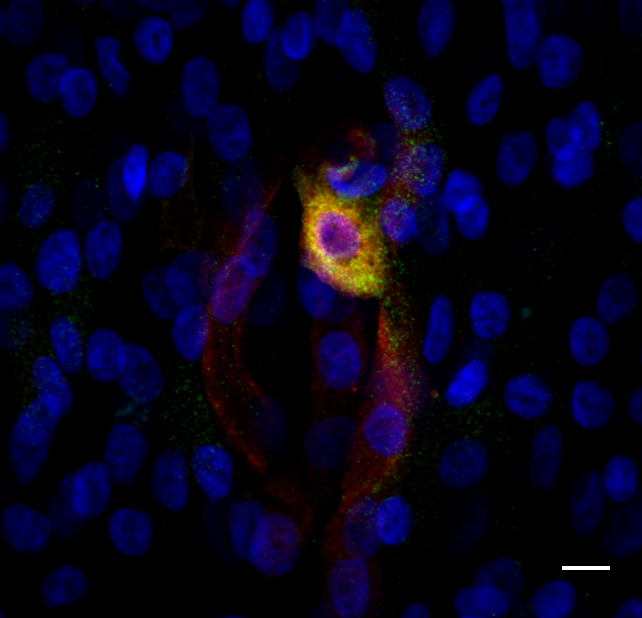Solitary Chemosensory Cells (Tuft Cells) in Nasal Polyps

Chronic rhinosinusitis affects up to 16% of the population in the United States and is among the most common reasons people seek medical attention. We demonstrated in a publication in the Journal of Allergy and Clinical Immunologyin 2018 that solitary chemosensory cells (SCCs), akin to type II taste cells in the tongue (responsible for taste transduction) and tuft cells in the mouse gut or trachea (responsible for local inflammation) are enriched in the sinus epithelium in those with chronic rhinosinusitis with nasal polyps. Little is known about the role of these rare epithelial cells role in human mucosal inflammatory diseases. We are working to characterize and identify taste and inflammatory pathways related to SCC differentiation and expansion in chronic rhinosinusitis and explore how SCC signaling through epithelial ion channels affects mucosal immune function, which may reveal novel therapeutic targets for the treatment of chronic rhinosinusitis.

